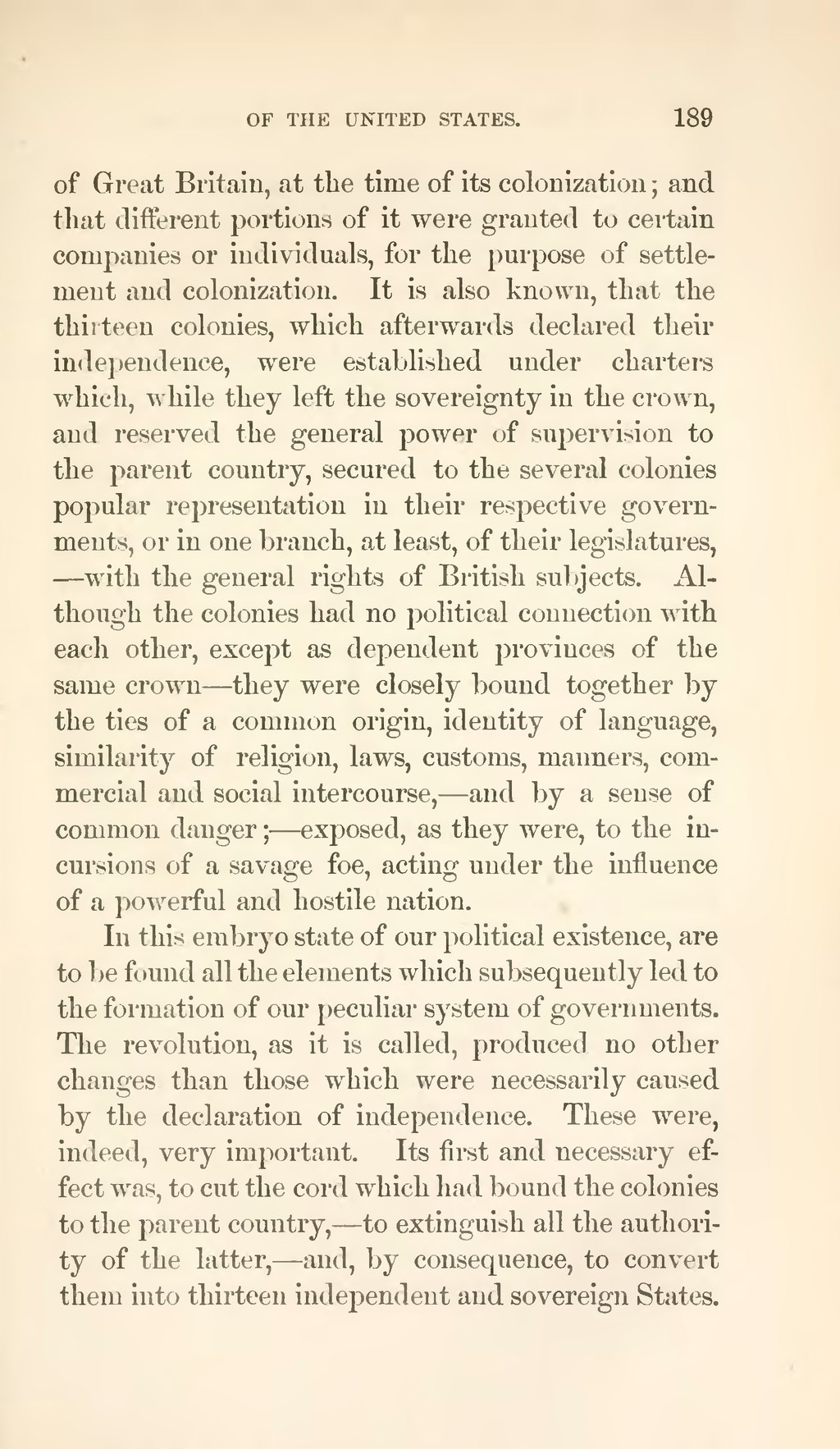of Great Britain, at the time of its colonization; and that different portions of it were granted to certain companies or individuals, for the purpose of settlement and colonization. It is also known, that the thirteen colonies, which afterwards declared their independence, were established under charters which, while they left the sovereignty in the crown, and reserved the general power of supervision to the parent country, secured to the several colonies popular representation in their respective governments, or in one branch, at least, of their legislatures — with the general rights of British subjects. Although the colonies had no political connection with each other, except as dependent provinces of the same crown — they were closely bound together by the ties of a common origin, identity of language, similarity of religion, laws, customs, manners, commercial and social intercourse — and by a sense of common danger — exposed, as they were, to the incursions of a savage foe, acting under the influence of a powerful and hostile nation.
In this embryo state of our political existence, are to be found all the elements which subsequently led to the formation of our peculiar system of governments. The revolution, as it is called, produced no other changes than those which were necessarily caused by the declaration of independence. These were, indeed, very important. Its first and necessary effect was, to cut the cord which had bound the colonies to the parent country — to extinguish all the authority of the latter — and, by consequence, to convert them into thirteen independent and sovereign States.
